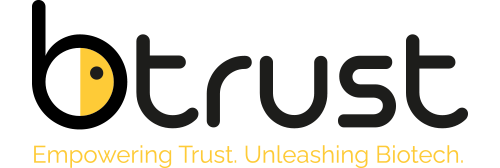About
Biotechnology is the application of science and technology to optimise and exploit organisms, biological systems and biological processes (or parts/products thereof) for innovative practical, environmental, industrial, commercial and production/application purposes.
Take fermentation as an example, a biological process with various biotechnological applications. It is used in healthcare to produce antibiotics, vaccines, and insulin. Additionally, fermentation is widely employed in the food industry to produce items such as bread, beer, wine, and cheese. Furthermore, it plays a role in waste management by contributing to the production of biofuels like butanol and biodiesels…
Essentially, biotechnology is a strategic powerhouse, accessing the inherent potential of living systems to drive significant advancements and tackle intricate challenges across diverse fields in areas such as healthcare, materials, chemicals, agriculture, and food production. The effective application of biotechnology is essential for steering the European industry towards a sustainable future, aligning with the objectives of the European Green Deal, which is a package of policy initiatives, that aims to set the EU on the path to a green transition, to reach climate neutrality by 2050.

B-Trust



The effective application of biotechnology in agri-food and biobased sectors – think of microbial protein, cultivated meat, production of milk components using micro-organisms, biodegradable plastics, …- plays a crucial role in building a sustainable European future. B-Trust wants to contribute to the valorisation and implementation of these groundbreaking technologies by focusing on building consumer trust and broader stakeholder acceptance. Tackling trust related hurdles is as critical as addressing technological, economic and regulatory challenges, in view of delivering impact at scale with these biotech solutions.
– Flanders’ FOOD, Project Coordinator

B-Trust



The effective application of biotechnology in agri-food and biobased sectors – think of microbial protein, cultivated meat, production of milk components using micro-organisms, biodegradable plastics, …- plays a crucial role in building a sustainable European future. B-Trust wants to contribute to the valorisation and implementation of these groundbreaking technologies by focusing on building consumer trust and broader stakeholder acceptance. Tackling trust related hurdles is as critical as addressing technological, economic and regulatory challenges, in view of delivering impact at scale with these biotech solutions.
– Flanders’ FOOD, Project Coordinator
Despite the well-demonstrated benefits of biotechnology in boosting the economy, creating jobs, and contributing to public and environmental health, there is an obstacle in public acceptance and implementation due to consumer perceptions and concerns. This barrier presents a challenge for industries and investors, creating reluctance to fully embrace and invest in biotechnological solutions. Additionally, there’s little incentive to address and remove regulatory barriers preventing the implementation of these innovative solutions.
Overcoming these challenges is vital to unlock the full potential of biotechnology and propel the European industry towards a greener and more sustainable future.
Behind the governance model
The four pillars of B-Trust’s governance model:
The B-Trust governance model is focused on creating a sustainable impact aligned with the UN Sustainable Development Goals (SDGs). To achieve this, the project will develop a Theory of Change (ToC) to guide its efforts. This approach will illustrate how the project’s interventions lead to desired changes, outlining causal linkages and impact pathways. The ToC serves as a communication tool, aligning expectations and instilling trust, while also facilitating informed decision-making and continuous learning.

Steering towards impact while keeping all relevant actors committed:
B-Trust is set to develop an innovative governance model, relying on four key pillars for the success and sustainability of collaboration and trust-building efforts. These pillars aim to encourage knowledge exchange, raise awareness, drive innovation adoption, and ensure ongoing engagement from all stakeholders. In simpler terms, they are essential for establishing and maintaining trust in biotechnology and bio-based innovations.
This governance model intends to actively engage and involve relevant actors at regional, European, and global levels. The goal is to facilitate better-informed decision-making, foster collective awareness and acceptance, encourage social engagement, and support biotechnological innovation within bio-based systems.

Shifting towards value co-creation with civil society and consumers as trust catalysts:
Rooted in solid consumer trust, the B-Trust governance model sees consumers as key trust catalysts who can lower barriers to biotechnology. It emphasizes value co-creation, involving consumers in the design process to better understand their needs and perspectives. Co-creation is a creative process that gathers bottom-up input, moving beyond traditional top-down approaches. The project employs a structured approach, including guidelines for co-creation sessions, ensuring meaningful input from consumers and other stakeholders.

Enabling comprehensive assessment and fostering transparency:
The B-Trust governance model commits to developing biotechnology Risk-Benefit Assessments for a thorough evaluation of its development and application. These assessments, created in collaboration with biotech researchers and experts, will be translated into layman’s language for consumer understanding. They also serve as tools for discussing accountability for risks and benefits, shaping the project’s narratives and trust-building measures.

Setting up incentive schemes for replication, creating leverage and ensuring sustainability:
Recognising the importance of incentive schemes, the B-Trust governance model aims to encourage the endorsement and adoption of its measures. These incentives will create governance networks, encouraging voluntary commitment from the 5H actors to integrate co-creation programs and associated principles and trust-building measures. The B-Trust forum plays a central role in engaging relevant actors throughout the project’s duration, fostering capacity building, and hosting communities of practice for B-Trust Ambassadors who implement co-creation programs and trust-building measures.
